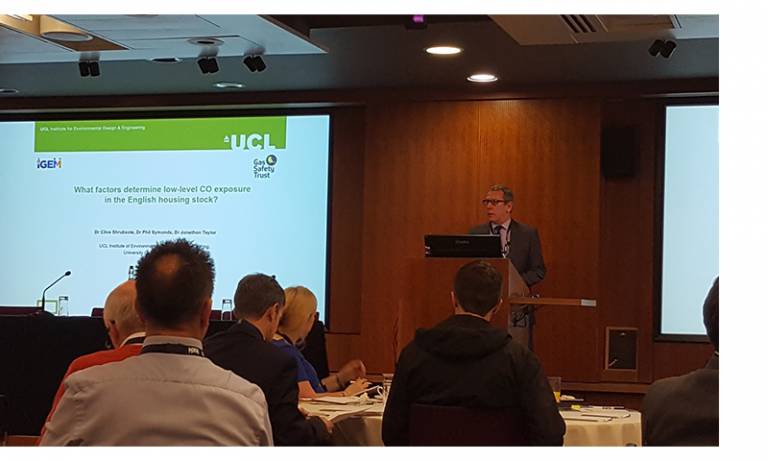New research finds extractor fans are key to improving CO safety in kitchens
29 November 2017
On 21 November 2017, at the IGEM Research into Action conference, UCL published its Factors Contributing to Low-Level Carbon Monoxide (CO) Exposure in the English Housing Stock report.

This research is sponsored by the Gas Safety Trust (GST), used modelling software to input the English Housing Survey (EHS) and Energy Performance Certificates (EPC) to better understand the risk of CO poisoning across the UK’s housing stock.
There are 22.8 million homes in the UK and currently it is thought that only 28% of which have a CO alarm.
The research found that flats were particularly at risk of CO poisoning, and that retrofitted energy efficiency measures increased the risk of CO poisoning where additional purpose provided ventilation was not provided and used'. However, most critically the research found that the use of an extractor fan during cooking made a significant impact on the reduction of risk of CO poisoning.
Consequently, the GST is calling on householders and tenants to make sure they use their extractor fans when cooking or open a window if they do not have a fan, to make themselves and their families safer.
Chris Bielby, Chairman of the GST said:
“The best way to prevent exposure to CO poisoning is to make sure your appliances are serviced annually by a Gas Safe registered engineer, and to have an audible CO alarm tested to the standard EN 50291 in your home.
However, what this research shows is that you can further reduce the risk of CO poisoning by using an extractor fan (or at least opening a window) whilst cooking.
This simple measure could have a real impact on reducing the risk of CO poisoning.”
Dr Clive Shrubsole, Senior Research Associate at University College London said:
“Urban areas tend to have higher CO exposures compared to rural areas due to high outdoor levels, and houses common to urban areas such as flats and terraced properties may have an elevated CO risk due to their smaller floor areas. For properties with gas as the source of fuel for cooking it is essential that people ventilate either by opening a window or switching on an extractor fan that vents outdoors. Without this, the risk from CO increases. It’s obvious advice, but sometimes we need to be reminded of the obvious.”
“Our research suggests that making buildings more airtight without adding sufficient additional ventilation may cause an increase of 14% in buildings that exceed the recommended 8-hour exposure limits set by the EU and World Health Organisation, making ventilation even more important.”
About the Gas Safety Trust
The Gas Safety Trust, established in 2005 as a registered charitable body, has become the UK’s leading fuel safety charity with the key objectives of further improving fuel safety for the public and industry throughout the United Kingdom and reducing the incidents of death and serious injury from carbon monoxide exposure. The Gas Safety Trust is funded generously by the gift-aided profits of CORGI Services Limited, www.corgiservices.com.
About the GST CO Portal
The Gas Safety Trust (GST) has created an online carbon monoxide (CO) portal, which is the central repository for data and information relating to CO in the UK. The portal was launched in January 2015. The Portal has three main sections Legislation and Standards, which include information on Regulations, Standards, Guidance and Codes of Practice, Academic References, which is a searchable reference library of academic papers relating to CO and Data and Documents, which contains reports and other general information on CO, www.coportal.org.
To download the report click here:
For further information please contact:
Adrian McConnell
Trust Manager
Gas Safety Trust
T: 020 7706 5111
M: 07792 219649
E: adrian@gassafetytrust.org
W: www.gassafetytrust.org
Follow us: @GasSafetyTrust
Visit GST’s CO Portal: www.coportal.org
 Close
Close

